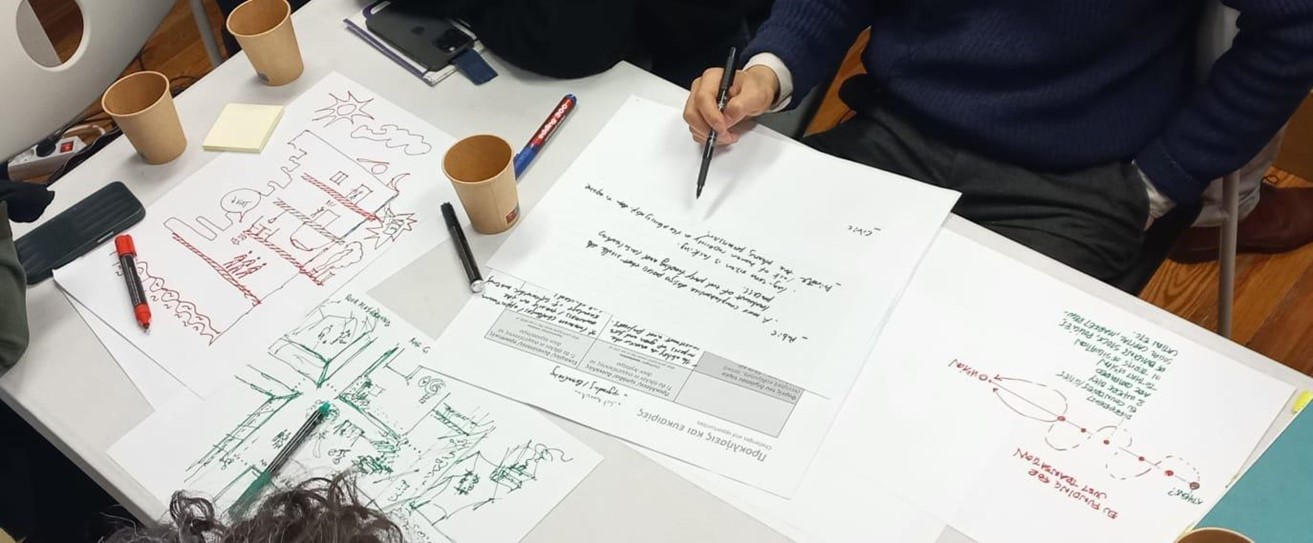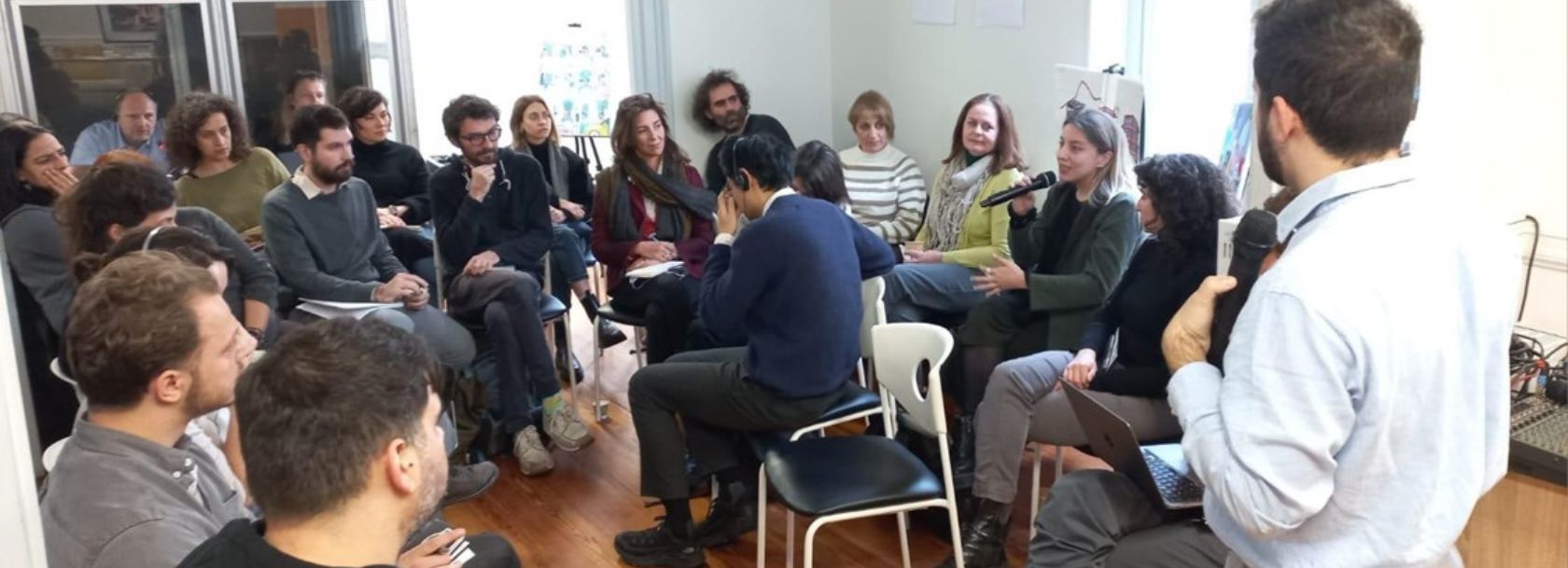As part of the ‘Building for Today and Tomorrow’ project, on 25th January 2024 representatives from academia, government, civil society, NGOs and the private sector gathered at the Higgs incubator in Athens to envision pathways for a just transition in Athens' built environment.
The project combines research and visioning in eight cities worldwide, linking to regional and global advocacy to ensure that climate action regarding buildings and infrastructure is just and respects human rights. It particularly focuses on four areas: affordable housing, the rights of construction workers, meaningful participation, and non-discrimination/ spatial justice.
Participants included:
-
Academia: National Technical University of Athens and Metropolitan College of Athens.
-
Government: the Municipality of Chalandri; UN Habitat; SynAthina, the Municipality of Athens’ pioneering digital civic engagement platform; and the Greek National Centre for Social Research, which is part of Ministry of Development and Investments.
-
Civil society: No Auctions, a CSO campaigning against evictions of people falling behind on their mortgage payments; the European Action Coalition for the Right to Housing and to the City; the UrbanDig Project, a CSO working on participatory urban development; CoHab Athens, an organisation researching cohousing and collective ownership models; Steps, a charity providing support to homeless people; and EKPOIZO, a consumer union carrying out studies on the energy sector and energy upgrades of housing.
-
NGOs: C40 Cities; ICLEI; The Green Tank, an environmental policy research think-tank; IFOAM Organics International, a coalition for organic agriculture, biodiversity, food security, soil health and action against climate change; and Eteron Institute for Research and Social Change.
-
Private sector: Hellenic Properties, a real estate developer and investor; Iraisynn Attinom Architects, an award-winning Greek architecture firm; and Future Needs, a consultancy to support innovation in sustainable SMEs

Key insights from the Athens visioning workshop included:
-
Participants noted the lack of participatory spaces in Athens, in line with the general lack of opportunities for citizens’ engagement in decision-making. To this end, they were very positive about the format of the session, the networking opportunities it provided, and the insights into work conducted by IHRB and ICLEI. In terms of participation policies, the creation of the SynAthina platform was mentioned as one of the flagship measures of previous local governments to increase citizen engagement and participation in Athens.
-
While participants could agree on key problems, there was vigorous debate about how to address challenges. In particular, there was a widespread sense that problems in Athens have been discussed for decades without meaningful action having been taken. This included issues with the ageing housing stock of the city centre, underinvestment in public transport and pavements, and poorly coordinated decision-making when issues relate to multiple public bodies that may not communicate well.
-
The impact of the financial crisis was emphasised, with participants commenting that the city’s politics and economy have been ‘frozen’ for 15 years due to austerity and economic contraction. Participants also felt that the high levels of economic growth in Greece since 2021 have not improved the lives of ordinary people, with concerns about how inclusive growth is in Greece and also the rate of inflation, which is one of the EU’s highest
-
Participants were largely sceptical about new plans and strategies to address the impacts of climate change, referencing ongoing issues with poor transparency in the allocation of EU funds and inconsistent evaluation of spending. It was interesting that these issues were raised without prompts, given they echo criticisms made in the academic literature on this issue.
-
Likewise, the poor communications and lack of accountability of public bodies were noted. For instance, participants working in urban planning stated that they did not know how to contact the Decentralised Administration of Attica, which coordinates urban planning policies across Greater Athens. Likewise, it was noted that emails and phone calls to other public bodies typically go unanswered. Participants hoped that the digitisation of government services could help address this problem.
-
The EXOIKONOMO scheme to upgrade the energy efficiency of housing was raised by some participating organisations, and it sparked debate given the perception that it leads to increased rents and house prices that displace poorer households, with no alternative affordable or social housing available. The difficulty of meeting EU energy efficiency standards in Athens’ ageing building stock was also mentioned during the session. However, EXOIKONOMO was generally unknown to most attendees, and there was low awareness of other decarbonisation policies in the built environment in Greece.
-
Despite worker rights protection being central to ensuring a just transition, and the outreach efforts made to include this perspective, there was no union participation in the workshop, which showed the challenge of engaging with workers’ representatives in the city.
Participants also discussed what they would like to see “more of” and “less of” from the public sector, private sector and other actors.
This visioning workshop was organised, and this summary written by Liam O’Farrell, Dr. Vicky Kaisidou and Dimitrios Tsomokos (independent research consultants for IHRB's Built Environment Programme in Athens, Greece) and Marta Ribera, IHRB Europe Programme Manager, and Giulio Ferrini, IHRB Head of Built Environment.



